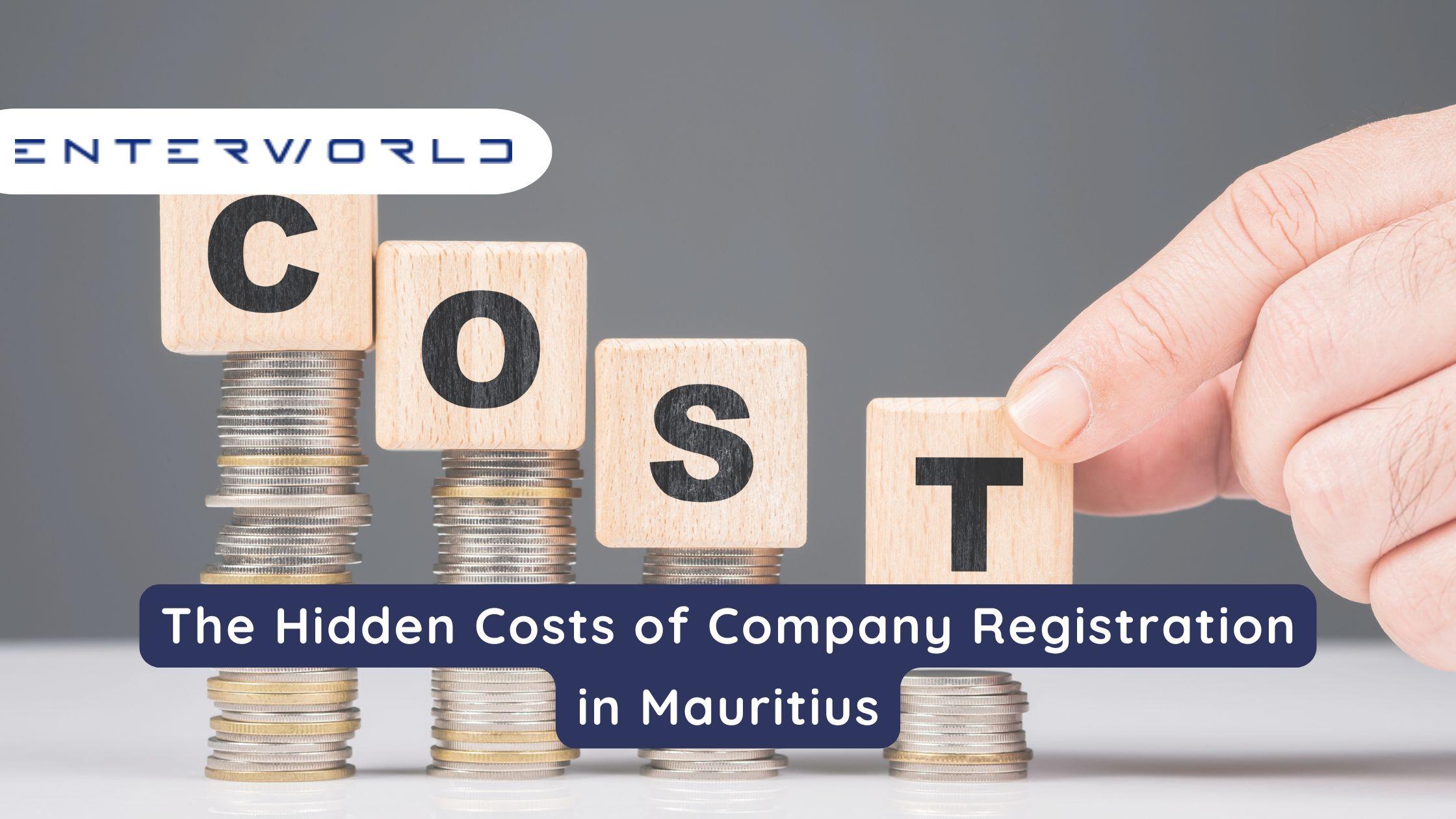Mauritius has long enjoyed its reputation as a leading jurisdiction for offshore and international business companies. Known for its strategic location, double tax treaty network, and investor-friendly policies, the country has become a favored destination for entrepreneurs, investment funds, and multinational holding structures.
But beneath the allure of low corporate tax rates and simplified incorporation lies a more complicated reality: company registration in Mauritius is not always as cheap or easy as it appears.
Beyond the advertised setup fees, businesses often face hidden costs that emerge after incorporation—costs related to compliance, local representation, government levies, and banking.
If you’re considering registering a company in Mauritius, understanding these lesser-known expenses can help you avoid unpleasant surprises down the road.
1. Regulatory License Fees and Renewals
Global Business Company (GBC) & Authorised Company (AC)
Mauritius offers two main types of international business entities:
-
Global Business Companies (GBC) – tax-resident entities that can benefit from Mauritius’ treaty network
-
Authorised Companies (AC) – non-resident structures typically used for holding or trading outside Mauritius
While the initial company formation fee might seem reasonable (usually between USD 1,200 to USD 2,500), that’s just the beginning.
Annual Licensing and Renewal Costs:
-
GBC License Fee: approx. USD 1,500 to USD 3,000 annually, depending on service provider and company complexity
-
AC Renewal Fee: approx. USD 800 to USD 1,200 annually
-
FSC (Financial Services Commission) Annual Fee: separate from agent fees and mandatory for GBCs
These fees often increase if you require specialized licenses (e.g., investment dealer, asset manager, fintech services).
2. Nominee Services and Local Officer Requirements
Mauritius requires that GBCs have at least two local directors who are residents of Mauritius and qualified to carry out directorship duties under local law. Additionally, GBCs must maintain:
-
A local company secretary
-
A registered office in Mauritius
-
A local management company (licensed corporate services provider)
These positions are often offered by your formation agent, but they aren’t included in most base packages. Fees for local director services can range from USD 1,500 to USD 3,000 per director per year. Company secretary services can cost an additional USD 500–1,000 annually.
If you want nominee shareholder or director services to protect privacy, expect extra costs—and sometimes enhanced due diligence requirements.
3. Substance Requirements and Hidden Operational Expenses
To access Mauritius’ favorable tax treaties, GBCs must meet economic substance requirements. These are set by the Mauritius Revenue Authority (MRA) and include:
-
Maintaining a physical office in Mauritius
-
Employing qualified local staff
-
Incurring reasonable local expenditures
What qualifies as “reasonable” is context-specific, but in practice, your company may be expected to:
-
Rent office space (costs vary but expect USD 3,000–5,000 annually)
-
Hire at least one or two administrative staff or consultants
-
Maintain a functioning phone number and utilities
Failing to meet substance requirements can lead to loss of tax residency, which removes access to double taxation treaties and triggers higher tax liability in other jurisdictions.
4. Banking: Fees, Delays, and Maintenance
Opening a bank account in Mauritius isn’t guaranteed—even for locally incorporated companies. Banks are becoming stricter with KYC and AML rules, particularly for foreign-owned entities.
Even once opened, maintaining the account brings:
-
Initial setup costs: USD 300–1,000 (varies by bank and intermediary)
-
Monthly maintenance fees: USD 10–50
-
Currency conversion and international transfer fees
-
Minimum balance requirements: often starting from USD 5,000–10,000
Banks in Mauritius often insist on a physical presence or local directors during onboarding, which may result in travel or power of attorney-related costs.
5. Taxation Surprises and Reporting Obligations
Mauritius is often seen as a “low-tax” jurisdiction, but that doesn’t mean zero obligations. As of recent reforms:
-
GBCs are taxed at 15% corporate tax (but eligible for 80% exemption on certain income types, bringing effective tax to 3%)
-
Filing of audited financial statements is mandatory
-
Transfer pricing rules apply to related-party transactions
-
Filing deadlines are strict, and penalties apply for non-compliance
Hiring a local accountant and auditor can cost anywhere from:
-
USD 1,000 to USD 3,000 for annual accounting and auditing
-
USD 500–1,000 for tax filing and advisory
Note: Authorised Companies (ACs) are not tax-resident and don’t benefit from treaties, but they must still maintain records and meet disclosure standards under international reporting rules.
6. Compliance with International Standards (FATCA, CRS, AML)
Mauritius complies with:
-
FATCA (Foreign Account Tax Compliance Act)
-
CRS (Common Reporting Standard)
-
Anti-Money Laundering and Counter-Terrorism Financing laws
Your company must undergo:
-
Ongoing due diligence
-
Beneficial ownership disclosure
-
KYC updates every 12–24 months
-
Automatic reporting of financial information (if applicable)
This administrative burden is usually handled by your management company—but it's not free. Most firms charge an annual compliance fee of USD 500–1,500, which is rarely disclosed upfront.
7. Exit and Strike-Off Fees
Thinking of closing your Mauritius company? Don’t expect a quick or cost-free process. Voluntary dissolution requires:
-
Clearance from the tax authority
-
Clearance from the management company
-
Payment of outstanding fees
-
Final audits and filings
Expect to pay USD 1,000–2,000 in closing costs, depending on your provider and the status of your filings. Non-compliant companies may face additional fines or even blacklisting of directors in future setups.
Conclusion: Mauritius Isn’t Expensive—Until It Is
Mauritius still offers significant benefits for global entrepreneurs, investors, and wealth planners: strong regulatory reputation, tax treaty access, and proximity to Africa and Asia. But the jurisdiction’s modernization and international alignment have introduced a layer of compliance and costs that many don’t expect upfront.
If you're considering company registration in Mauritius, treat it as a mid- to high-compliance jurisdiction. Don't be swayed by “$1,000 setup” packages. The real costs emerge in licensing, management, tax filing, compliance, and banking—and often exceed those of better-known jurisdictions like Singapore or the UK.



